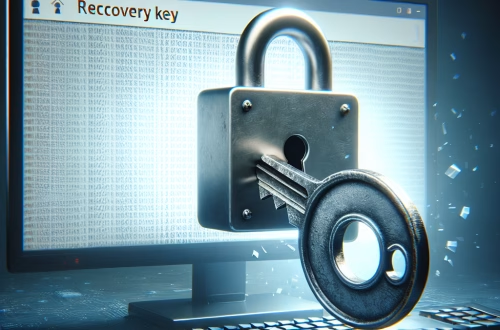BitLocker Asking for Recovery Key Every Boot in Windows 11
Summary: This article explains why BitLocker may repeatedly request a recovery key on Windows 11 startup, detailing its technical mechanisms, common issues, fixes, and security best practices. BitLocker, a full-disk encryption feature, ensures data security but may trigger recovery prompts due to configuration errors, hardware changes, or TPM issues. Understanding and resolving these prompts is critical for system administrators and security professionals.
Introduction
BitLocker, Microsoft’s disk encryption technology, protects data by encrypting entire volumes. In some cases, Windows 11 may persistently request a recovery key at every boot, interrupting normal operations. This behavior indicates underlying security or hardware misconfigurations that must be addressed to ensure seamless—yet secure—system startup.
What Is BitLocker Asking for Recovery Key Every Boot in Windows 11?
BitLocker Drive Encryption safeguards data by encrypting storage volumes and requiring authentication (via TPM, PIN, or USB key) before unlocking the drive. If BitLocker detects a potential security risk—such as a missing TPM module or a modified boot sequence—it may enforce recovery mode, requiring a 48-digit recovery key to proceed. This mechanism is designed as a failsafe but can become problematic if triggered unnecessarily.
How It Works
BitLocker relies on several components for secure boot:
- Trusted Platform Module (TPM): A hardware chip storing cryptographic keys; version 2.0 is required for Windows 11.
- UEFI Firmware: Ensures Secure Boot compatibility; legacy BIOS systems may cause issues.
- Group Policies: Controls BitLocker behaviors like startup authentication and recovery key storage (e.g., Active Directory backup).
At boot, BitLocker checks system integrity. If the TPM is unreadable, the boot sequence changes, or critical files are altered, recovery mode activates.
Common Issues and Fixes
Issue 1: Missing or Inaccessible TPM
Description: BitLocker cannot communicate with the TPM due to hardware failure, driver issues, or firmware settings.
Fix: Ensure TPM is enabled in UEFI, update firmware, and verify TPM status via tpm.msc. Reinitialize the TPM if necessary.
Issue 2: Modified Boot Configuration
Description: Changes to UEFI settings, boot order, or Secure Boot trigger BitLocker recovery.
Fix: Restore original boot settings or suspend/resume BitLocker via manage-bde -protectors -disable C:.
Issue 3: Corrupted BitLocker Metadata
Description: Damaged encryption metadata forces recovery prompts.
Fix: Use repair-bde to rebuild metadata or decrypt/re-encrypt the drive.
Best Practices
- Back up recovery keys to Active Directory or a secure external medium.
- Audit TPM health and firmware updates regularly.
- Use Group Policies to enforce consistent BitLocker configurations across enterprise devices.
- Avoid disabling Secure Boot unless absolutely necessary.
Conclusion
BitLocker’s recovery key prompts are a vital security feature, but frequent occurrences signal misconfigurations. Administrators should prioritize TPM management, boot integrity checks, and proactive key storage to balance security and usability in Windows 11 environments.
People Also Ask About
Why does BitLocker keep asking for a recovery key after a Windows update?
Windows updates may reset TPM states or modify boot files. Resolve this by suspending BitLocker before updates or validating TPM post-update via tpm.msc.
Can I bypass BitLocker recovery prompts permanently?
No, as it would compromise security. However, ensuring TPM stability and consistent boot configurations minimizes unnecessary prompts.
How do I find my BitLocker recovery key if I didn’t back it up?
Check Microsoft accounts linked to the device, enterprise Active Directory, or printed/key-file backups. Without these, data recovery is impossible.
Does BitLocker recovery impact performance?
No, but repeated recovery cycles suggest underlying issues that may affect system stability.
Other Resources
- Microsoft’s BitLocker Documentation: Official configuration and troubleshooting guides.
- BitLocker Recovery Guide: Step-by-step recovery key retrieval.
Suggested Protections
- Enable TPM and Secure Boot in UEFI before activating BitLocker.
- Store recovery keys in multiple secure locations.
- Monitor Event Viewer logs for BitLocker-related errors (Event ID 24620, 24624).
Expert Opinion
Persistent BitLocker recovery prompts often stem from lax pre-encryption checks or TPM mismanagement. Enterprises should standardize hardware configurations and automate recovery key escrow to prevent operational disruptions. Ignoring these prompts risks accidental data lockout or forced decryption, negating BitLocker’s security benefits.
Related Key Terms
- BitLocker recovery key loop Windows 11
- TPM 2.0 not detected BitLocker
- Fix BitLocker asking for recovery key after BIOS update
- Disable BitLocker recovery prompt Windows 11
- BitLocker auto-unlock not working
#BitLocker #Asks #Recovery #Key #Boot #Windows #Fix
Featured image generated by Dall-E 3





